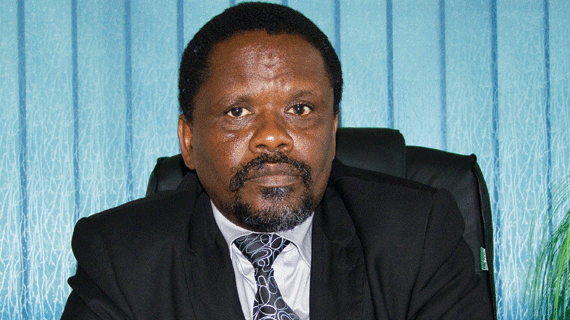
Taking the discourse from where we left it last week:-
The theory that is relevant or suitable for Africa is the one that admits that our world is a complicated juggernaut and human beings must always learn how best to manage it.
However, what emerges clearly form this discourse is that fascism is the preserve of dictators. Socialism and consensualism is fast losing ground in this modern state of affairs.
On the other hand, keynessism would be supported, especially in Zimbabwe’s present day high unemployment. South Africa is heavily investing in infrastructure, thereby putting strong building blocks for a developmental State.
Corruption would unfortunately stand in the way of effective government spending on infrastructural development in the case of Zimbabwe.
Monetarists and neoclassists share a lot in common, for example, both believe in a free market economy and in building costs of production into the prices of goods.
The Bretton Woods Institutions, the International Monetary Fund and the World Bank to name a few, are neoclassic in nature. Their programmes suggest downsising of labour, removal of subsidies, productivity-related wages and salaries and market flexibility (simply put, deregulation of the labour market, to allow multinationals or their local fronts to hire and fire willy nilly).
From a labour perspective, a theory or government policy that is developmental in thrust, will get the support of the working class.
- Chamisa under fire over US$120K donation
- Mavhunga puts DeMbare into Chibuku quarterfinals
- Pension funds bet on Cabora Bassa oilfields
- Councils defy govt fire tender directive
Keep Reading
Therefore a suitable economic theory for Africa, is the one that is people friendly and upholds decent work agenda programmes.
Opposition politics in Zimbabwe is currently in limbo. There is need for a catalyst, an agent of change, capable of breaking this political jinx.
There is talk of the grand coalition which one can easily confuse with the grand plan.
As long as our politics are informed by the Big Brother mentality, the superiority complex, by one ethnic group over the other, the grand coalition/ plan is bound to fail.
Any politician or political party needs to be evaluated against the aforesaid schools of economic persuasion.
Questions to be thrown at them would demand to know their leanage in as far as economic persuasion is concerned.
Back to one of my previous articles where I dealt with the blank cheque syndrome. The gullibility I referred to, is indeed dangerous.
What one said yesterday is quickly forgotten for example, “can’t squeeze money from a stone” – the government needs to cut down on salaries costs.
Civil servants should be thanked for being reasonable.
Who said squeeze money from the stone? By cutting government expenditure on salaries are you being developmental or promoting unemployment?
To whom are the civil servants being reasonable to, is it to themselves and the constituency or to oppression?
Consultation is not bargaining collectively, neither is dictating what is good for employees.
Labour laws of any given country portray the government philosophy in as far as a man is viewed.
Is man a machine or a human being?
If man is a machine he can be repaired or replaced willy nilly.
On the other hand, if he is a human being, a lot of consideration needs to be taken into account regarding his engagement, working life, as well as retirement.
Man is a social being unlike a machine, he has personal needs, those of the immediate family and society at large.
A people-friendly government cannot happily talk of productivity linkage wages in a country where infrastructure and machinery is obsolete.
Equally citizens, who are by the way the electorate, cannot be left to the vagaries of market flexibility.
In a sense this is introducing the survival of the fittest, the animal kingdom scenario.
Laws exist to protect both the weak and the strong.
Do remain hopeful that sanity will one day prevail.
Moses Tsimukeni Mahlangu is the general-secretary for Zimbabwe Urban Councils Workers’ Union. He is a labour consultant and arbitrator. Feedback: E-mail: [email protected]










